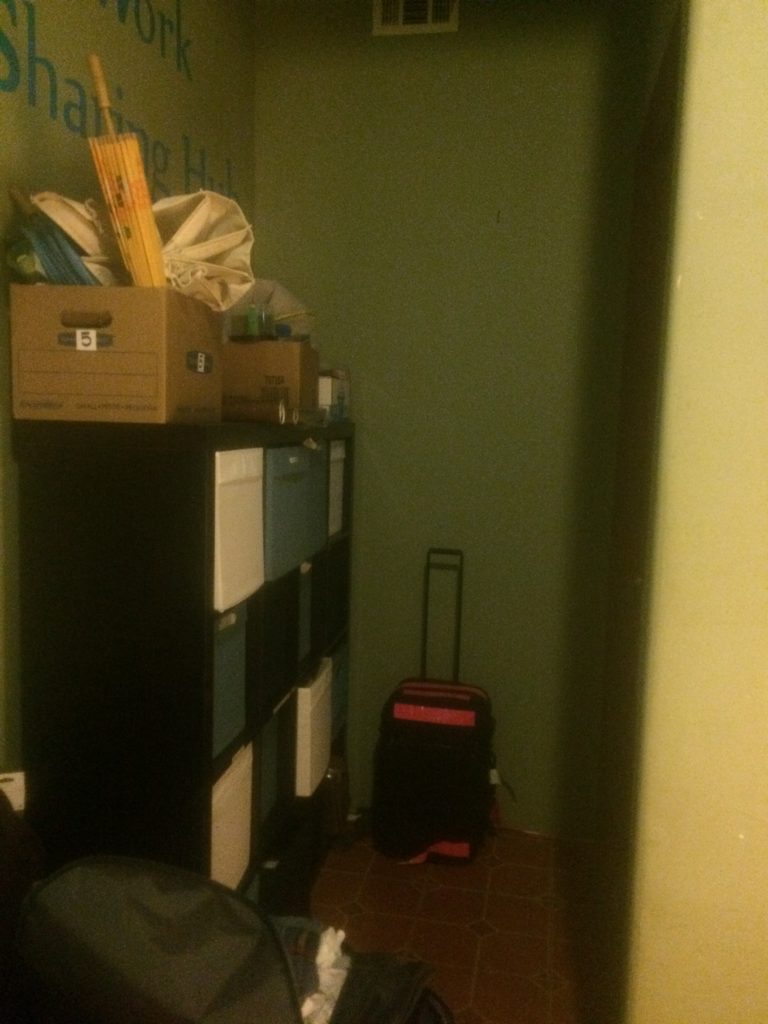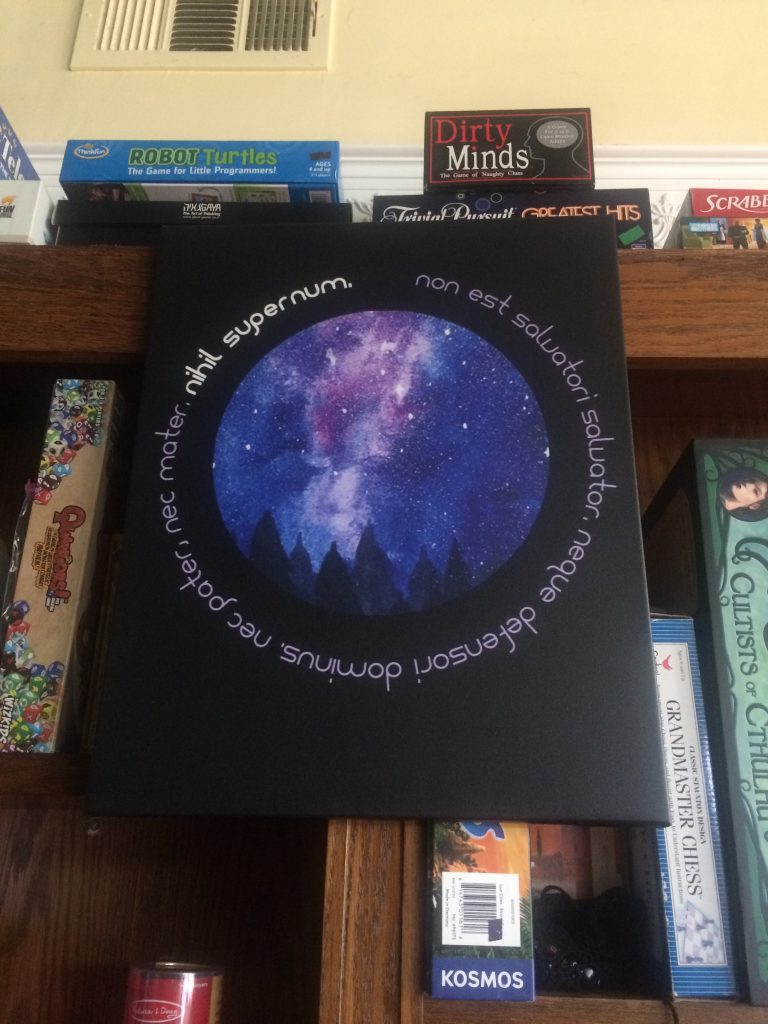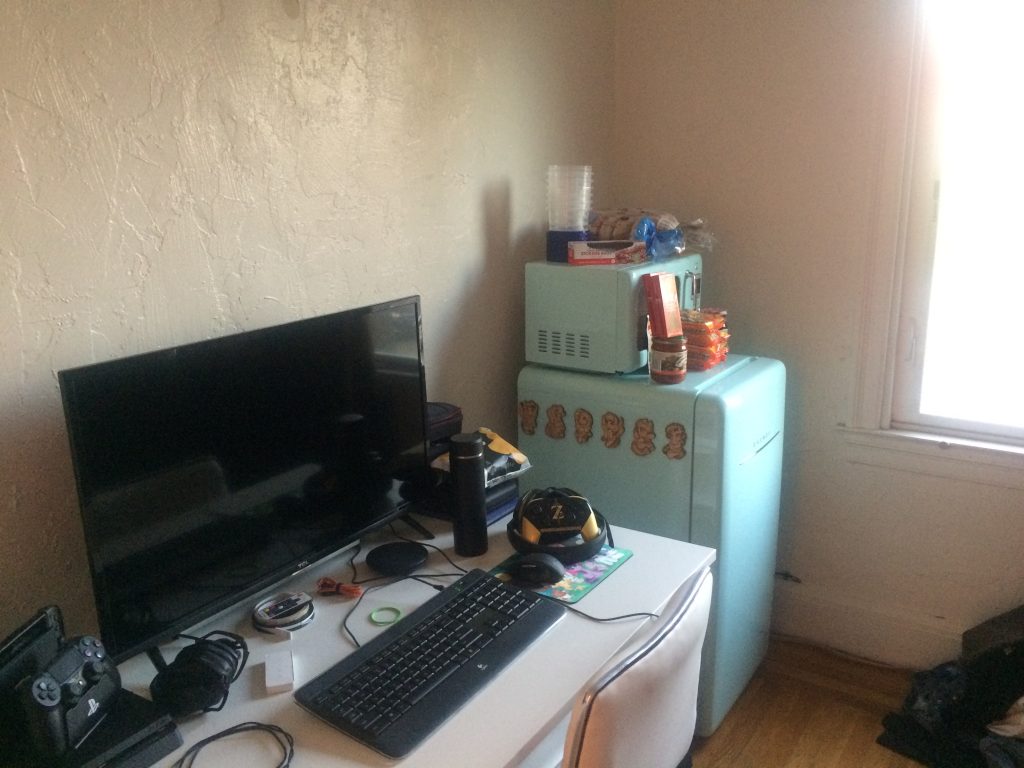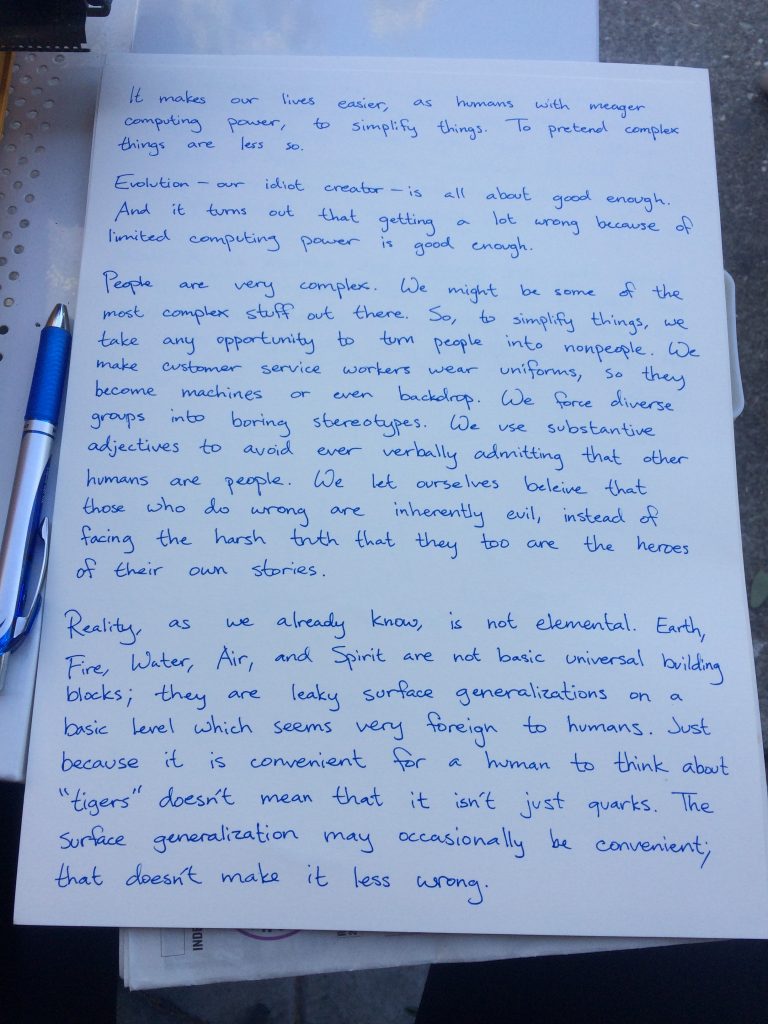I’ve pretty much known my purpose in life since I can remember.
So far as I can tell, I just had a really strange reaction to the concept of death. I first heard about it and I basically thought, wow, this is a problem, this really sucks, someone should do something about it. But as a kid, I just thought the grownups would take care of it, just the same way they would take care of my skinned knee.
As I got a little older, though, being very vocal as I’ve always been about my thoughts on death, I realized the grownups weren’t going to fix it. In fact, they seemed pretty damn complacent about the regularly-occurring permanent destruction of human consciousness. And so, being the egomaniac I am, I decided to personally fix this problem.
As I started high school (and college), my first classes were in lab sciences. After all, mortality is a biological problem and would likely have a primarily biological solution. But as I soon learned, much to my dismay, I suck at lab sciences.
Frustratingly, knowing your purpose doesn’t mean you’ll be good at it.
I immediately changed my focus from biology to computer science. The basic idea was very vague – I think it went something like, “since I’m no good at the science, I’ll make a ton of money and pay somebody else to do the science”.
But I went after it for four years, taking every computer science class my college offered. By the end of that, my new goal had developed into something slightly more cogent: I would create a series of technology-focused startups and become a billionaire, then use the money to fund a nonprofit research company. As soon as the nonprofit produced something promising, it could spin off into its own for-profit startup and start selling it.
I didn’t worry too much about not having any grand ideas for tech startups. I knew I would first have to become the kind of person who could actually execute successfully against a great startup idea if it fell in her lap. So, I made a list of stuff I would need to know to create and run a successful business, from programming to finance to business law, and set to work on ticking items off the list.
By the end of high school and college (which I completed simultaneously for efficiency), I headed across the country in lieu of completing my four-year degree, content with an Associate’s in Computer Information Systems. Toward the end of my schooling, I’d worked full-time at a sales firm for six months, and now I was headed to work in marketing for another six months.
I can’t elaborate past this point, since I’m still living it.
This all probably makes me sound very cool, but that’s only because I conveniently left out all the bad bits. I left out the part where I sobbed into my sister’s arms over the B in chemistry that I squeaked out with all my effort. I left out the part where I had a three-week-long existential crisis over my decision to not attend a four-year college. And I left out the fact that I have absolutely no clue what I’m doing a lot of the time.
It matters how you spin things.
Knowing your purpose is useful, but it’s hardly the be-all-end-all. It doesn’t magic away your insecurities or your problems. It doesn’t make you a good person. Heck, it doesn’t even mean you actually know your purpose: you might just think you do.
Becoming a sociable, mature, capable, hardworking, understanding, responsible, reasonable, rational, good person has not been any easier just because I’ve known my life’s purpose since I was 3. In fact, being a socially awkward egomaniac with a really weird impossible goal has made some of that stuff harder. And knowing my purpose hasn’t made any of those things less important, either: it’s made a lot of them more important.
There is no amount of awesomeness that makes you immune to insecurity. People I’ve met around here, with more raw talent and chutzpah than I’ve ever mustered for anything, are still insecure. It’s common to every human. And at least in my opinion, there’s solidarity in that.
















